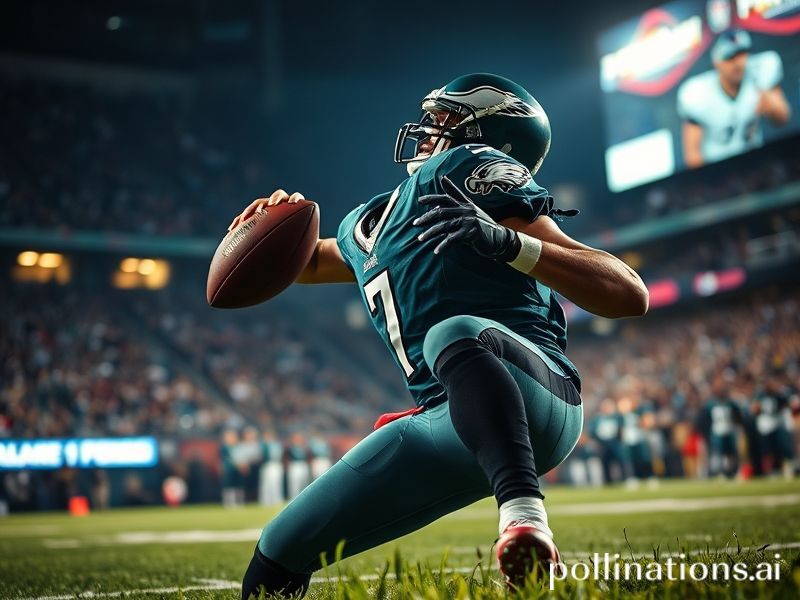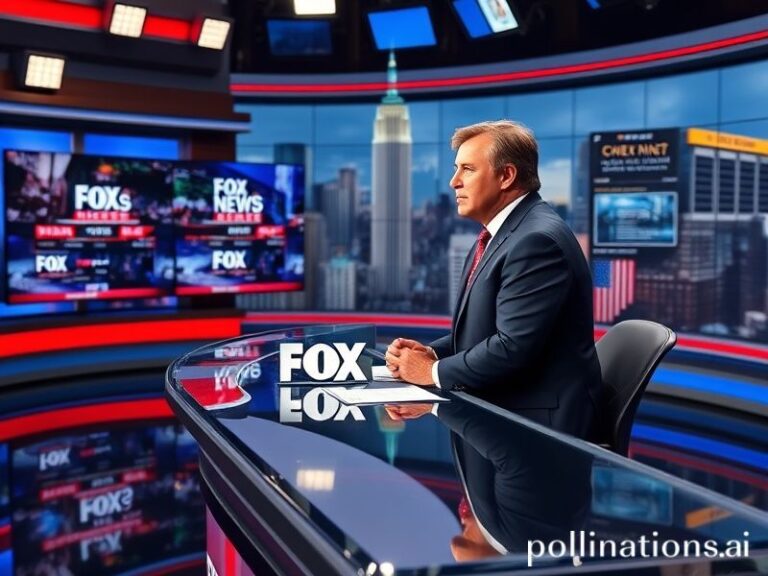From Gridiron to Global Villain: How Michael Vick Became the World’s Favorite American Scapegoat
Michael Vick: The Quarterback Who Went Global by Way of a Dogfight
When Michael Vick’s name surfaces in polite conversation from Berlin to Bangkok, it is rarely preceded by “three-time Pro Bowler” and almost always followed by the Germanic hiss of “Hundekampf.” The American football star’s spectacular fall from grace in 2007—bankruptcy, 23 months in federal prison, and a lifetime’s supply of public scorn—turned out to be the NFL’s most successful accidental export since shoulder pads. Not because anyone abroad suddenly started caring about the Atlanta Falcons’ red-zone efficiency, but because Vick’s saga arrived just in time to confirm every international stereotype about the United States: loud, violent, and weirdly sentimental about animals.
Europe, still nursing a post-colonial guilt complex the size of Greenland, embraced the Vick scandal with the fervor of a reformed smoker. In Britain, where fox hunting is now a quaint Netflix documentary subject, tabloids splashed Vick’s mug across pages usually reserved for Brexit meltdowns. The French, never ones to miss a chance at moral one-upmanship, dispatched sociologists to explain why American culture breeds “la violence spectaculaire.” (Their conclusion: too much corn syrup and not enough Proust.) Even China—where Yulin’s annual dog-meat festival continues to thrive behind the Great Firewall—found room to cluck its tongue at American barbarism, a geopolitical judo move so brazen it deserves its own Olympic medal.
The global ripple effect was swift and mercenary. PETA’s international branches saw donations spike 30 percent in 2008, proving nothing unites disparate continents like a common villain who can’t read a zone blitz. Adidas, Nike, and even the Japanese firm Mizuno raced to scrub Vick’s likeness from billboards faster than you could say “sweatshop damage control.” Meanwhile, Australia quietly updated its visa regulations to bar anyone convicted of animal cruelty, a move insiders dubbed the “Vick Clause,” which sounds like a Robert Ludlum novel but plays like bureaucratic poetry.
Ironically, the scandal also exported American redemption theater—an art form as indigenous as jazz and just as improvisational. Qatar’s Al Jazeera ran a primetime special titled “Second Acts in the Colonies,” examining how U.S. society recycles disgrace into prime-time narrative. Vick’s 2010 comeback with the Philadelphia Eagles became a transatlantic morality play: a cautionary tale for some, a capitalist resurrection miracle for others. German sports talk shows, normally obsessed with Bayern Munich’s defensive line, dissected Vick’s passer rating with Teutonic solemnity, as if it were a new EU directive on cheese labeling.
Yet the most enduring international takeaway has nothing to do with football or contrition. Vick’s case became a Rorschach test for how cultures rank their sins. In Latin America, where drug lords fund entire municipalities, the notion of jailing a man over dogs prompted incredulous laughter. In India, activists compared Vick’s sentence to the impunity enjoyed by poachers who skin tigers alive, suggesting cosmic injustice on a karmic installment plan. Even South Africa—no stranger to complicated legacies—held panel discussions asking whether Vick’s crimes outweighed those of apartheid profiteers still sipping Chardonnay in Stellenbosch.
A decade and a half later, Vick now appears on ESPN as a studio analyst, his smile calibrated to the wattage of corporate forgiveness. Abroad, the story has settled into a comfortable parable: America’s ability to monetize its own moral panic. Merchandise sales in Europe featuring vintage Vick jerseys spiked again last year, marketed not to football fans but to irony connoisseurs who wear them to Berlin techno clubs like couture confessionals. Japan sells limited-edition plush pit bulls with removable angel wings—collect all 23 felonies!
The broader significance, if one insists on such things, is that Michael Vick accidentally globalized the concept of selective outrage. In a world where Saudi Arabia hosts heavyweight boxing matches and Qatar stages World Cups built by migrant labor, Vick remains a convenient avatar for sins we all agree on—because the dogs can’t unionize. That, dear reader, is the true American innovation: exporting moral clarity in neat, sponsor-friendly packages, complete with a redemption arc and optional subtitles.







